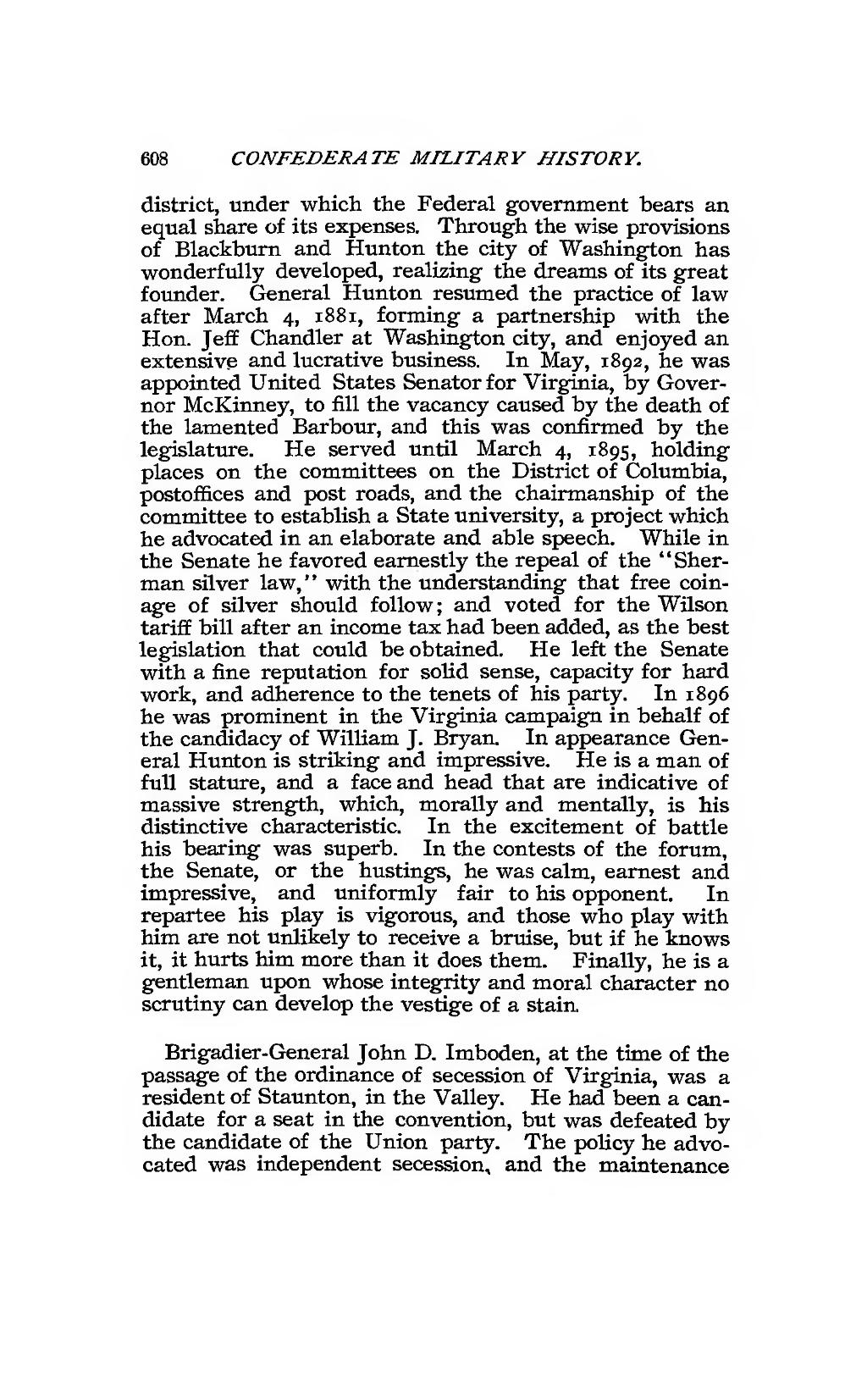district, under which the Federal government bears an equal share of its expenses. Through the wise provisions of Blackburn and Hunton the city of Washington has wonderfully developed, realizing the dreams of its great founder. General Hunton resumed the practice of law after March 4, 1881, forming a partnership with the Hon. Jeff Chandler at Washington city, and enjoyed an extensive and lucrative business. In May, 1892, he was appointed United States Senator for Virginia, by Governor McKinney, to fill the vacancy caused by the death of the lamented Barbour, and this was confirmed by the legislature. He served until March 4, 1895, holding places on the committees on the District of Columbia, postoffices and post roads, and the chairmanship of the committee to establish a State university, a project which he advocated in an elaborate and able speech. While in the Senate he favored earnestly the repeal of the "Sherman silver law," with the understanding that free coinage of silver should follow; and voted for the Wilson tariff bill after an income tax had been added, as the best legislation that could be obtained. He left the Senate with a fine reputation for solid sense, capacity for hard work, and adherence to the tenets of his party. In 1896 he was prominent in the Virginia campaign in behalf of the candidacy of William J. Bryan. In appearance General Hunton is striking and impressive. He is a man of full stature, and a face and head that are indicative of massive strength, which, morally and mentally, is his distinctive characteristic. In the excitement of battle his bearing was superb. In the contests of the forum, the Senate, or the hustings, he was calm, earnest and impressive, and uniformly fair to his opponent. In repartee his play is vigorous, and those who play with him are not unlikely to receive a bruise, but if he knows it, it hurts him more than it does them. Finally, he is a gentleman upon whose integrity and moral character no scrutiny can develop the vestige of a stain.
Brigadier-General John D. Imboden, at the time of the passage of the ordinance of secession of Virginia, was a resident of Staunton, in the Valley. He had been a candidate for a seat in the convention, but was defeated by the candidate of the Union party. The policy he advocated was independent secession, and the maintenance

